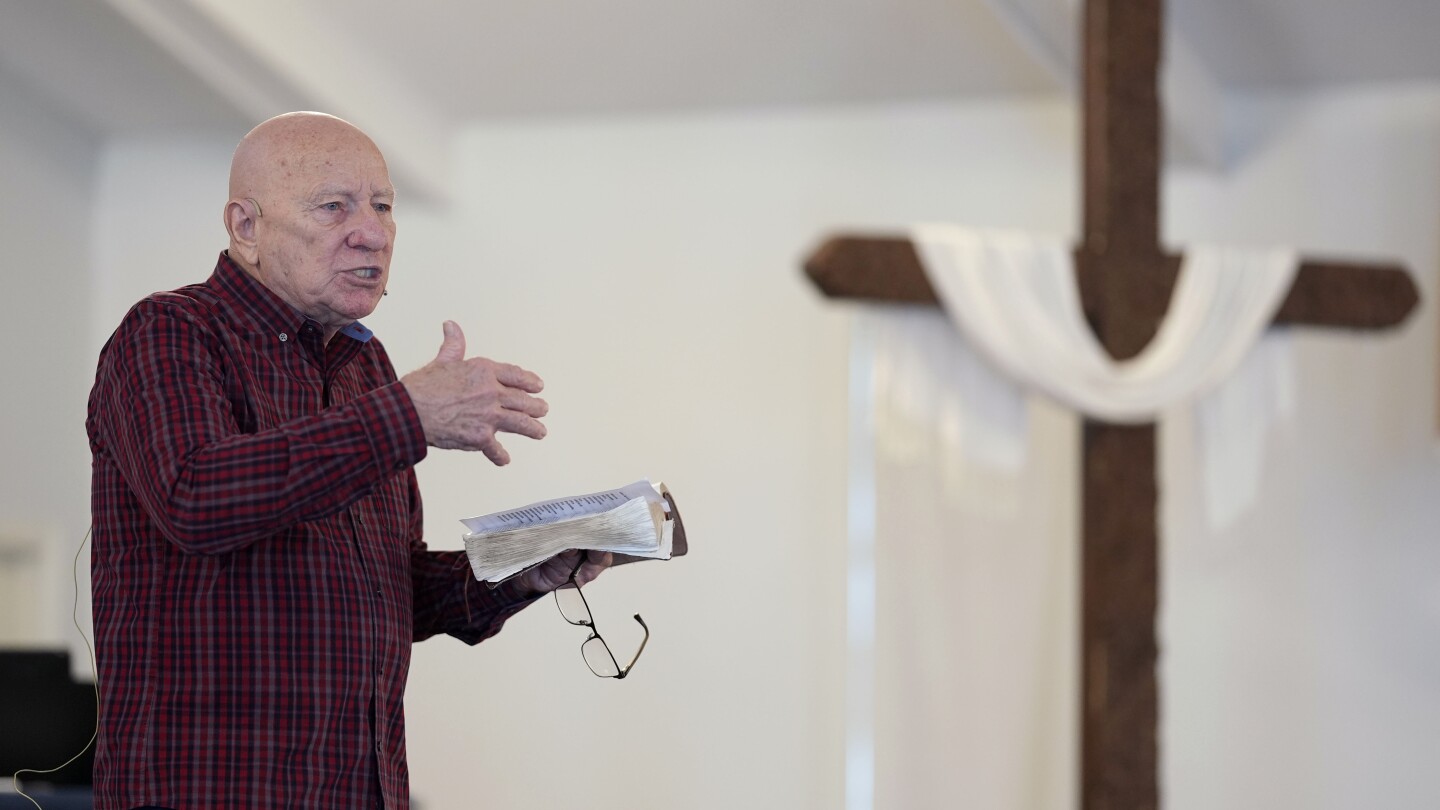“We thank you for the upcoming election, Lord — or caucus, as we call it in Iowa,” said Hundley, speaking from the sanctuary of his evangelical Christian church in his slight Texas drawl as his parishioners bowed their heads.
“It doesn’t matter what our opinion is,” he went on. “It’s really what’s your opinion that matters. But you’ve given us the privilege of being able to exercise a beautiful gift. The gift of vote. We thank you for that.”
While Hundley stops short of suggesting to his parishioners which candidate divine guidance should lead them to support, he is among more than 300 pastors and other faith leaders who’ve been described as supporters by former President Donald Trump’s campaign. It’s a message that some members of Hundley’s First Church of God have taken to heart, saying their faith informs their intention to caucus for Trump.
Ron Betts, a 72-year-old Republican who said he plans to caucus for “Trump all the way,” said he felt the former president “exemplified what Jesus would do.”



Are American Christians not able to tell the difference between their internal monlogue and divine guidance, or what?
It’s crazy how God is always telling these people the things that reinforce their biases and never things like “Go help Habitat For Humanity.”
There is no difference. They think there’s a difference. Got it backwards.
Finding a definitive answer on whether or not any god exists is way above most of our pay grades.
But even if I were religious, I don’t see myself thinking “maybe chili tonight for dinner?” And responding “okay, thanks God”.
We literally have a scene from a children’s movie here in Sweden from our famous author Astrid Lindgren where exactly that’s the joke, the kid answers their own prayer asking if they can take more cake
There is credible speculation that our internal monologue is what started the idea of God in the first place.
American Evangelicalism is a tulpamancy cult. I was raised Evangelical, sent to a private Evangelical school, and made to attend several Evangelical churches until adulthood. In all of these communities, it was universally believed that God directly speaks to each person through a special voice in their head. I was very strongly pressured to find, listen to, and obey this voice, and made to feel like I was not a “true believer” for being unable to channel it into glossolalia.
Tulpa:
“Modern practitioners, who call themselves “tulpamancers”, use the term to refer to a type of willed imaginary friend which practitioners consider to be sentient and relatively independent. Modern practitioners predominantly consider tulpas to be a psychological rather than a paranormal concept. The idea became an important belief in Theosophy.”
https://en.wikipedia.org/wiki/Tulpa
This is a huge point that should be talked about more. Tulpamancy isn’t pseudoscience, it’s very real and religion, especially Christianity, uses it to great effect. The process of finding and cultivating the “voice of God” is the exact process used to create an intentional tulpa of any number of various other types, there are entire internet communities about it. A little bit of research with this context in mind is extremely eye opening.
They shift attribution depending on whatever is politically convenient. Religion is America’s original sin and those traitors know it.
It’s worse than that. Religion was co-opted into the maintenance of slavery, and it caused schisms in multiple sects, including the Baptists, Presbyterians, and Methodists
https://www.politicalorphans.com/the-article-removed-from-forbes-why-white-evangelicalism-is-so-cruel/
That is an amazing read! Thanks for the history lesson!